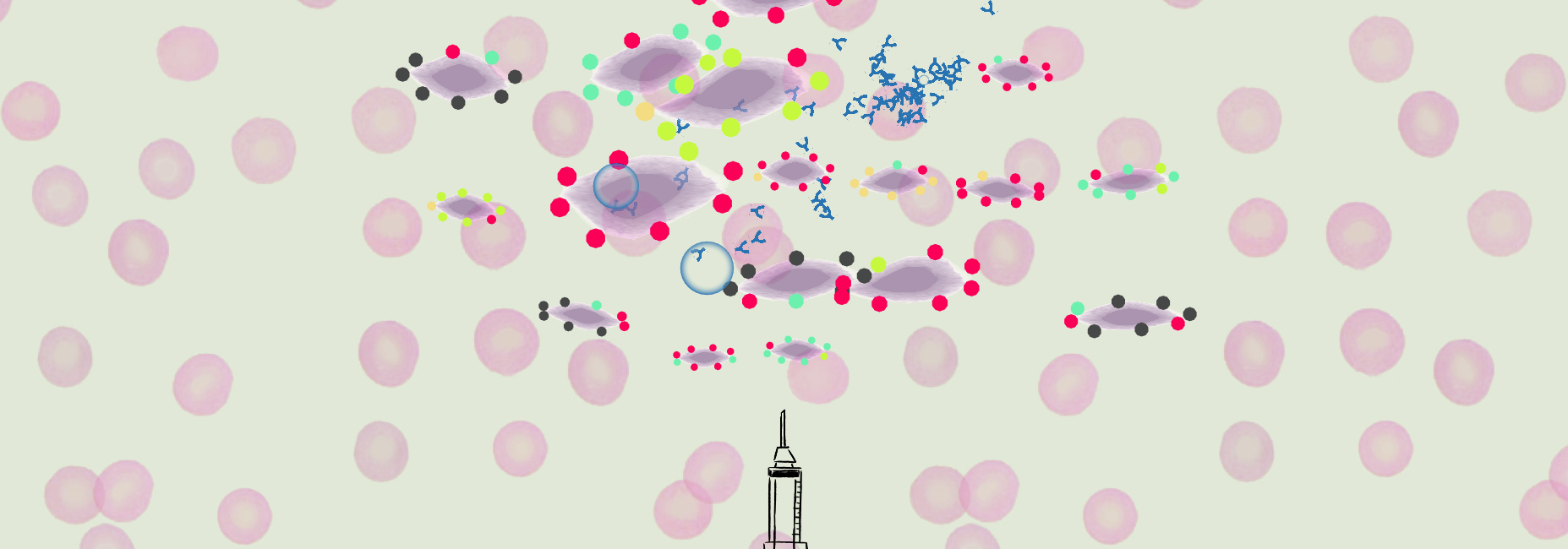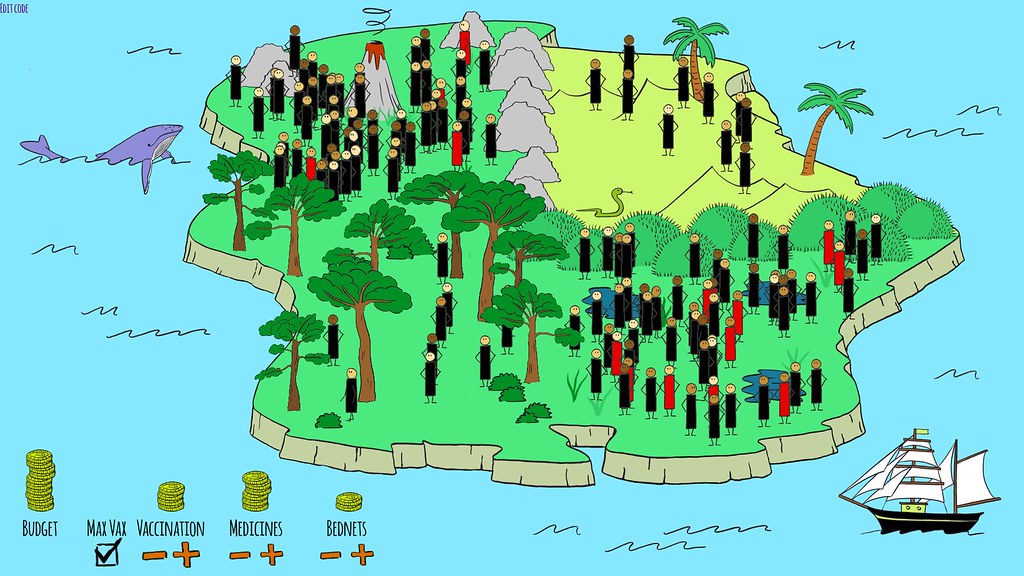Malaria Minigames

Together with Prof Matthew Higgins (University of Oxford), we developed two minigames about malaria for installations at the Royal Society Summer Exhibition 2018.
One is a space invaders inspired game, where the player has to keep malaria parasites under control by firing 'vaccines' at them. at the moment, vaccinations are only effective for some malaria parasites - but Matt's group is researching a new type of vaccination which targets proteins that are present on the surface of all malaria parasites. The same dynamic is at play in the game, so instead of firing randomly it pays to see which vaccine might be the most effective. For simplicity we've had to take some liberties with the biology here - in reality these vaccinations deliver isolated surface proteins to the body, the body then makes antibodies to match those proteins, and then has lots more antibodies that are able to target and kill the malaria parasites.
The second game is a playable simulation. There is an island inhabited by lots of people, with four different environments. The desert is very dry so there is a low risk of malaria and a low population density, while the volcanic region is also at low risk from malaria but has fertile ground and so attracts a high population density. The lakes and forests are damp so have higher risk from malaria, with lakes being more highly populated than the dense forests. The player has access to a budget and can make decisions about how much to spend on various mitigation approaches - normal vaccinations, special vaccinations that target all malaria parasites, antimalarial drugs and bed nets. The results of budget changes are immediately visible as people on the island recover or become unwell. It is also possible to allocate all the budget to a single zone, to see how that changes the outcomes. the simulation behind the game comes directly from the epidemiological research.
We were particularly interested in this project because we've been thinking recently about how to make playable simulations for policy makers. The ability to play with the research means that people can thoroughly understand it, and explore the impacts of various policy decisions. This could be good for facilitating evidence-based policy making, and indeed for helping anyone to understand research findings more deeply.
The games are, as always, open source and the project was funded by the Wellcome Trust.


